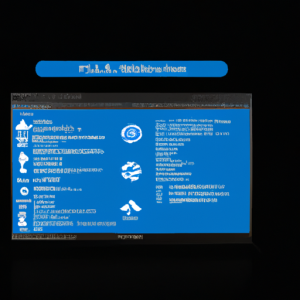Microsoft Azure is a cloud computing platform that offers a wide range of services, including computing power, storage, and networking. As more and more organizations are adopting cloud technologies, the demand for skilled Azure professionals is on the rise. In this article, we will explore how to start learning Microsoft Azure, the various courses and labs available, the importance of hands-on experience, and the growing demand for Azure engineers.
Why Learn Microsoft Azure?
Before diving into the learning process, it’s essential to understand why Microsoft Azure is worth learning. Here are some key reasons:
- Market demand: According to a recent report by Gartner, Microsoft Azure holds the second-largest market share in the cloud computing industry, right behind Amazon Web Services (AWS). This means that there is a high demand for professionals with Azure skills.
- Wide range of services: Azure offers over 200 services, including Infrastructure as a Service (IaaS), Platform as a Service (PaaS), and Software as a Service (SaaS). This variety allows professionals to work on diverse projects and gain expertise in multiple areas.
- Integration with other Microsoft products: Azure seamlessly integrates with other Microsoft products like Office 365, Dynamics 365, and Power BI, making it an attractive choice for organizations already using these tools.
- High salaries: According to Glassdoor, the average salary for an Azure engineer in the United States is around $120,000 per year, making it a lucrative career choice.
Understanding the Basics of Microsoft Azure
Before you start learning Azure, it’s essential to familiarize yourself with some basic concepts and terminology. Here are some key terms you should know:
- Virtual Machines (VMs): VMs are the backbone of Azure’s computing power. They allow you to run applications and services on virtualized hardware, which can be easily scaled up or down as needed.
- Storage: Azure offers various storage options, including Blob Storage for unstructured data, Table Storage for structured data, and File Storage for file shares.
- Networking: Azure provides a range of networking services, such as Virtual Networks (VNETs), Load Balancers, and VPN Gateways, to help you build and manage your network infrastructure in the cloud.
- Security: Azure offers several security features, including Azure Active Directory for identity and access management, Azure Security Center for monitoring and managing security threats, and Azure Key Vault for securely storing and managing secrets.

Choosing the Right Learning Path
Microsoft offers various learning paths and certifications for Azure, depending on your interests and career goals. Here are some popular Azure certifications:
- Azure Fundamentals (AZ-900): This certification is designed for beginners and covers the basics of Azure, including core services, pricing, and support. It’s an excellent starting point for those new to cloud computing or Azure.
- Azure Administrator (AZ-104): This certification is for IT professionals who want to manage and maintain Azure resources. It covers topics like virtual machines, storage, networking, and security.
- Azure Developer (AZ-204): This certification is for developers who want to build and deploy applications on Azure. It covers topics like Azure Functions, App Services, and Cosmos DB.
- Azure Solutions Architect (AZ-303 and AZ-304): This certification is for experienced IT professionals who want to design and implement solutions on Azure. It covers topics like infrastructure, data management, and application design.
- Azure DevOps Engineer (AZ-400): This certification is for professionals who want to implement DevOps practices on Azure. It covers topics like continuous integration, continuous deployment, and infrastructure as code.
Choose the certification that aligns with your career goals and interests, and start preparing for the corresponding exam(s).
Learning Resources for Microsoft Azure
There are numerous resources available to help you learn Microsoft Azure. Here are some popular options:
- Microsoft Learn: Microsoft Learn is the official learning platform for Azure. It offers free, self-paced learning paths, modules, and hands-on labs for various Azure topics and certifications.
- Pluralsight: Pluralsight is a popular online learning platform that offers a wide range of Azure courses, covering topics like administration, development, and architecture. Some courses are aligned with specific Azure certifications.
- LinkedIn Learning: LinkedIn Learning (formerly Lynda.com) offers several Azure courses, covering topics like virtual machines, storage, and networking. Some courses are aligned with specific Azure certifications.
- Udemy: Udemy is an online learning platform that offers a variety of Azure courses, covering topics like administration, development, and architecture. Some courses are aligned with specific Azure certifications.
- YouTube: YouTube is a great resource for free Azure tutorials and demos. Channels like Microsoft Azure, Azure Academy, and CloudGuru offer informative and engaging content.
Hands-on Experience with Azure Labs
Hands-on experience is crucial for mastering Azure concepts and skills. Microsoft offers several resources for gaining practical experience:
- Azure Free Account: Microsoft offers a free Azure account with a $200 credit for the first 30 days and access to over 25 free services. This allows you to experiment with Azure services without incurring any costs.
- Azure




